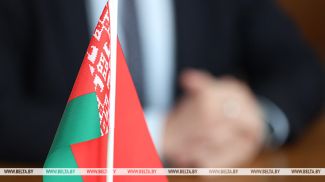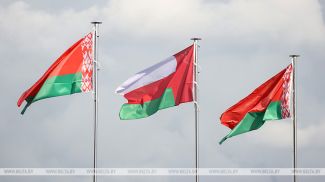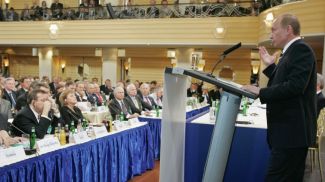MOSCOW, 9 February (BelTA) - Unlike NATO, the CSTO does not hatch plans to change political systems in other countries, Russian Deputy Foreign Minister Alexander Pankin said at the conference "Collective Security in a New Era: Experience and Prospects of the CSTO" organized by the Valdai International Discussion Club with the support of the Russian Foreign Ministry in Moscow on 9 February, BelTA has learned.
"The nature and scale of new challenges and threats seem to be ones and the same for all, namely drug trafficking, cyber threats and so on. But there is a fundamental difference between the threats that we, Russia and our allies, are facing and, say, NATO countries," the Russian deputy foreign minister said. “None of us, either Russia or our allies, are or going to plot revolutions or to make plans to change a capitalist, liberal, conservative, or other coalition government in a particular country, in a group of NATO countries.”
"There were no changes of power under the influence of a Eurasian, Chinese, or a Russian factor, or a CSTO factor," Alexander Pankin emphasized. "At the same time, for some reason our country is the subject of close attention and active efforts that pursue political change goals."
"We must understand that we are not wired as an organization, as a community of allies to change someone else's policy, mindset and way of thinking, or a political system. This is not our thing," he said. Meanwhile each CSTO country has experienced attempts to change the political system from the outside, up to the installment of political figures. "Velvet, color, other revolutions are the embodiment of those efforts," he said.
"The second point that distinguishes us: the CSTO is the core, the system of ensuring collective security in the CSTO zone of responsibility which covers our countries only. We do not consider the Middle East, which we border on, the Far East, the West, or the North to be our zone of responsibility. The area of responsibility is our own space. Meanwhile NATO and NATO allies see the whole world as their area of responsibility. That's the difference," Alexander Pankin said.













